
Flat Earthers attempted to sail to the edge of the world – and it ended in massive disappointment
Despite no evidence backing up their claims, Flat Earthers are adamant that they are correct when it comes to the shape of our Earth. Even when their own evidence disproves them, it seems. Back in 2020, a couple from Venice tried to prove the world was flat by setting sail to the edge of the world, which they believed was somewhere near Sicily, after a planned Flat Earthed cruise to Antartica was cancelled due to the Covid-19 pandemic. The couple violated the lockdown restrictions in place at the time of their travels, selling their car in order to buy a boat. Using a compass, a device that works because the Earth is round, the pair set off in their boat to reach Lampedusa. However, it was not long until they found themselves lost, tired, and on the island of Ustica instead. Salvatore Zichichi of the Maritime Health Office of the Ministry of Health told Italian newspaper La Stampa: "For them, Lampedusa [an island of the Italian Pelagie Islands in the Mediterranean Sea] was the end of the Earth." "The funny thing is that they orient themselves with the compass, an instrument that works on the bass of terrestrial magnetism. A principle that they, as Flat Earthers, should reject." They were placed in quarantine by health officials due to the ongoing pandemic at the time, but the couple escaped and sailed away in pursuit of the edge of Earth. Three hours later, they were caught. The pair tried to escape one more time but failed, and abandoned their plan, taking a ferry back to mainland Italy once their time in quarantine was fulfilled. Sign up to our free Indy100 weekly newsletter Have your say in our news democracy. Click the upvote icon at the top of the page to help raise this article through the indy100 rankings.
2023-10-18 19:23
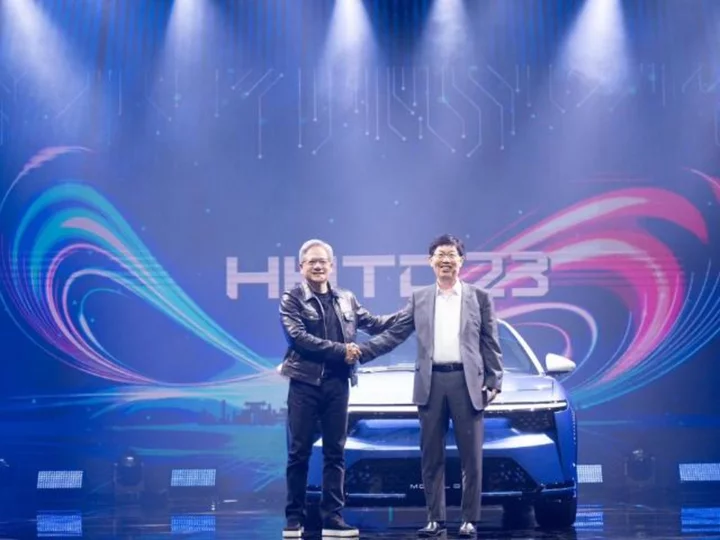
Taiwan's Foxconn to build 'AI factories' with Nvidia
Taiwan's Foxconn says it plans to build artificial intelligence (AI) data factories with technology from American chip giant Nvidia, as the electronics maker ramps up efforts to become a major global player in electric car manufacturing.
2023-10-18 18:46
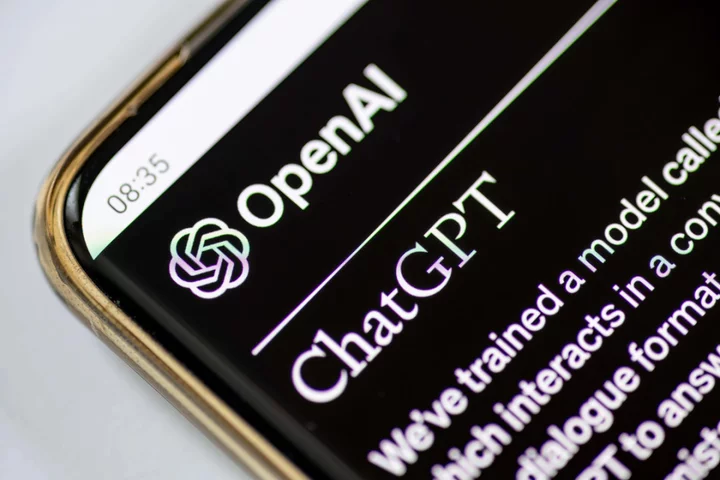
ChatGPT creator quietly changes core values from ‘thoughtful’ to ‘scrappy’
ChatGPT creator OpenAI has updated its company’s core values, replacing words like “thoughtful” and “collaborative” with “intense and scrappy”. The AI firm’s values, published on a careers page of its website, were changed between 25 September and 16 October, according to a screenshot captured by the Internet Archive. The top value is listed as “AGI focus”, referring to artificial general intelligence that is considered to be at the same level or greater than human-level intelligence. “We are committed to building safe, beneficial AGI that will have a massive positive impact on humanity’s future. Anything that doesn’t help with that is out of scope,” the new values state. The Independent has reached out to OpenAI for comment on whether the move signals a shift in company direction. The update, first spotted by Business Insider, comes amid an industry-wide push towards the development of AGI, with some academics and experts accelerating their timelines for it being achieved since the launch of ChatGPT last year. Forecasts suggest that the arrival of AGI could be hugely destabilising for the global economy, with some even warning that it could pose an existential threat to humanity. Swedish philosopher Nick Bostrom, based at Oxford University, previously warned that the arrival of AGI would precede so-called superintelligence, whereby computer intelligence surpasses human intelligence and AI development becomes uncontrollable and irreversible. In one thought experiment involving a rogue AI, Mr Bostrom wrote: “The AI will realise quickly that it would be much better if there were no humans because humans might decide to switch it off.” OpenAI has consistently called for a careful approach to the development of such technology, arguing that it could have profound implications for society, like curing diseases and turbocharging the economy. Last month, OpenAI chief executive Sam Altman wrote in a post on Reddit that his company had achieved AGI “internally”, however he later claimed that it was just a joke. “Obviously this is just memeing, y’all have no chill, when AGI is achieved it will not be announced with a Reddit comment,” he wrote. Read More The mystery AI device that could replace your phone The mystery AI device that could replace your phone Elon Musk’s X may charge some users $1 a year to post on platform Apple just released a new Pencil after days of excitement
2023-10-18 18:28

Hitting 'snooze' on your alarm might actually be good for you, scientists say
If you’re one of the many people who loves sleep and finds it a huge struggle to get up in the mornings, we’ve got some news that might just make you feel a little better. As it turns out, scientists have released a new study which suggests that hitting snooze on your alarm may actually be good for you. A new study has claimed that the extra sleep brought by snoozing an extra half hour in the mornings could help to improve cognitive performance. The research published in the Journal of Sleep Research surveyed more than 1,700 adults from across the world and looked into their morning habits. According to the study, a total of 69 per cent of those involved admitted they snoozed their alarms at least some of the time. Then, 31 of these people were tested and the researchers found that snoozing their alarms improved some of their scores following cognitive examinations. The tests they were subjected to involved things like memory tests and basic maths questions. Compared to not snoozing for 30 minutes, when the people did snooze they either improved their scores in the tests or their performance was not affected. "Snoozing for 30 minutes in the morning does not have any major negative effects on the sleep that night or how tired one feels when waking up," said Tina Sundelin [via Live Science], who is the lead study author and psychologist at Stockholm University in Sweden. "For those who are drowsy in the morning, such as evening people, and find that snoozing helps them wake up, the study shows that they may actually be more objectively alert [meaning that they performed better on the cognitive tests] after snoozing — even if they don't feel more or less sleepy.” It comes after a sleep expert revealed the worst common sleeping position for people which could be bad for our health. Sign up for our free Indy100 weekly newsletter Have your say in our news democracy. Click the upvote icon at the top of the page to help raise this article through the indy100 rankings
2023-10-18 18:27

Experts unravel mystery of the Pokémon episode that hospitalised hundreds of kids
Pokémon’s TV series has been delighting animé lovers for more than 26 years, and yet, there’s one episode that even the most diehard of fans may well have missed. The installment, titled Dennō Senshi Porygon (which roughly translates as "Computer Warrior Porygon”) aired in Japan on December 16, 1997. And, after that single, fateful outing, it was never to grace television screens again. The reason for the ban? Reports of a strange health outbreak among children which was linked to a specific scene. The episode follows Ash Ketchum, Pikachu and their pals as they investigate a faulty Poké Ball transfer machine by getting inside it. Once there, the team come under attack, but are saved when Pikachu unleashes one of his high-octane electric outbursts – represented by a barrage of red and blue strobe lights. And that’s where the trouble began. According to scientific paranormal investigator Benjamin Radford and sociologist Robert Bartholomew, who dedicated a study to the event: "At 6:51 PM, the flashing lights of Pikachu's 'attack' appeared on television screens. “By 7:30 PM, according to Japan's Fire-Defense Agency, 618 children had been taken to hospitals complaining of various symptoms." These symptoms included convulsions, nausea and vomiting, with news of the “illness” spreading rapidly throughout the country. Inevitably, it made headlines, with several news broadcasters replaying the offending clip, “whereupon even more children fell ill and sought medical attention,” Radford and Bartholomew wrote. The following day, TV Tokyo issued an apology, suspended the show, and announced an investigation into the cause of the seizures. Meanwhile, video retailers pulled the series from their shelves, and even the then-prime minister Ryuaro Hashimoto expressed concern at the use of rays and lasers in the popular cartoon. Within two days, the number of children reported to have been affected by the flashing sequence increased to around 12,700. And yet, after four months of investigation – with input from health experts and Japanese government officials – no obvious cause could be found for the outbreak and Pokémon returned to the airwaves. Because, although the bright flashes were assumed to be the cause of the health panic, such visual techniques had been used in numerous other animé episodes before, with no reports of any problems. So what was going on here? Well, a tiny fraction of the children who reported being affected were diagnosed with photosensitive epilepsy, with experts concluding that the rapid colour changes during the scene caused them to suffer seizures. However, the bulk of “patients” reported symptoms that had no identifiable “organic” cause and were, instead, consistent with a very different type of condition… Mass hysteria. Radford and Bartholomew attribute this “epidemic hysteria”, in large part, to the mass media, which they say fuelled panic and misinformation. "Many of the children's symptoms had no identifiable organic basis; other than the verified cases of seizures, the symptoms reported were minor and short-lived; the victims were nearly exclusively school children in early adolescence; and anxiety from dramatic media reports of the first wave of illness reports was evident,” they wrote. “Media reports and publicity fuel the hysteria as news of the affliction spreads, planting the idea or concern in the community while reinforcing and validating the veracity of the illness for the initial victims,” they continued. “According to news accounts of the time, the number of children said to be affected remained around 700 the evening of the Pokémon episode and the next day. “The next morning, the episode dominated the Japanese news. Japanese children who had not heard about their peers from the news or from their parents learned of it that morning when the seizures ‘were the talk of the schoolyards’,” they continued. “Once the children had a chance to hear panicky accounts of what had happened through the mass media, their friends and their schools, the number of children reported the next day to have been initially affected – 2 days earlier – increased by 12,000.” Radford and Bartholomew ended their paper by noting that this Pokémon drama offers a warning to us all. They pointed out that our continuing reliance on mass communications, especially TV and the internet, places us at risk of more and more hysteria outbreaks. “Technological innovations are occurring at unprecedented rates and have the potential to influence significant numbers of people beyond the typical number in traditional mass hysteria episodes,” they stressed. “Epidemic hysterias that in earlier periods were self-limited by geography now have free and wide access to the globe in seconds.” Concluding on an ominous note, they added: “The Pokémon illness symptoms are without precedence, given the large numbers affected, and may be a harbinger of future technological hysterias that have the capacity to affect unprecedented numbers of people at a phenomenal speed.” Sign up for our free Indy100 weekly newsletter Have your say in our news democracy. Click the upvote icon at the top of the page to help raise this article through the indy100 rankings.
2023-10-18 17:18

US escalates tech battle by cutting China off from AI chips
The Biden administration is reducing the types of semiconductors that American companies will be able to sell to China, citing the desire to close loopholes in existing regulations announced last year.
2023-10-18 16:50
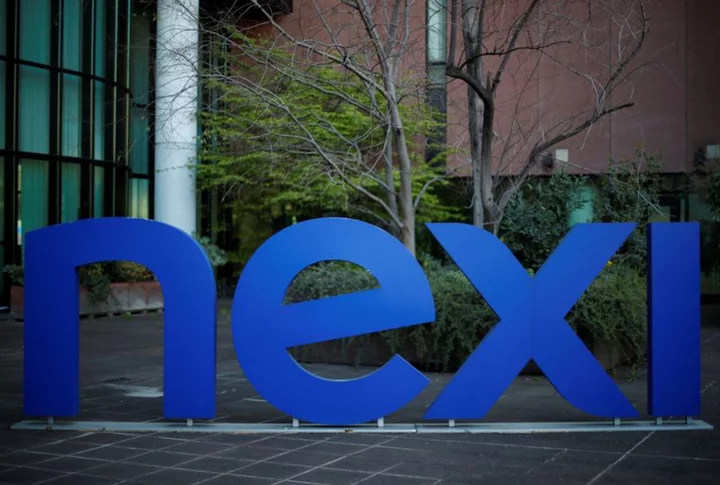
Nexi shares fail to open on bid report as CVC declines to comment
MILAN Shares in Italy's Nexi failed to start trading at open on Wednesday due to excessive gains fuelled
2023-10-18 15:51

ASML reports third-quarter net profit of $2 billion, sees 2024 sales flat
AMSTERDAM (Reuters) -Semiconductor equipment maker ASML Holding NV reported on Wednesday third-quarter earnings of 1.9 billion euros ($2.01 billion), in
2023-10-18 13:29

Elon Musk’s X may charge users in these two countries $1 a year to post on platform
Elon Musk’s X is planning to charge users in New Zealand and the Philippines joining via the platform’s web application $1 per year as part of its programme to reduce bot activity. The subscription is part of X’s “Not A Bot” programme, which attempts to “bolster our already significant efforts to reduce spam, manipulation of our platform and bot activity”, the company noted in a help centre post on its website on Tuesday. As part of the pilot programme, new users signing up via the website in the two countries will also be required to verify their account with a phone number, the unsigned post said. It remained unclear why the subscription programme is being rolled out only in these two countries, and exclusively for new users joining via the X website, and not the mobile app. However, Not a Bot’s terms and conditions suggested that people may also subscribe to the programme from X’s iOS and Android apps, while the main help centre post only specified web. X did not immediately respond to The Independent’s request for comment. “As of October 17th, 2023 we’ve started testing “Not A Bot”, a new subscription method for new users in two countries,” the company posted. “This will evaluate a potentially powerful measure to help us combat bots and spammers on X, while balancing platform accessibility with the small fee amount. Within this test, existing users are not affected,” it said. New users from the two countries who opt to subscribe with $1 will for the web version of the platform will be able to post content, like posts, reply, repost and quote other accounts’ posts, as well as bookmark posts, X noted. However, those who opt out of this subscription in the web application “will only be able to take ‘read only’ actions, such as: Read posts, Watch videos, and Follow accounts,” the company stated. “This new programme aims to defend against bots and spammers who attempt to manipulate the platform and disrupt the experience of other X users. We look forward to sharing more about the results soon,” it added. The latest programme is also in addition of X’s premium $8 subscription option. Commenting on a post on X about the new programme, Mr Musk called it “the only way to fight bots without blocking real users.” “Correct, read for free, but $1/year to write. This won’t stop bots completely, but it will be 1000X harder to manipulate the platform,” the multibillionaire said. X’s latest decision is in line with the Tesla titan’s aim to curb bot activity on the platform since before his takeover of then-Twitter in November last year. He has also held from the beginning that charging users would curb bot activity on the social media platform even though it has been found that only a small fraction of users subscribe to its $8 premium service. But the multibillionaire has continued to hold that a subscription fee would make it harder for bots to create accounts since each bot would need a new credit card to register on the platform. “It’s the only way I can think of to combat vast armies of bots,” Mr Musk said last month. “Because a bot costs a fraction of a penny – call it a tenth of a penny – but even if it has to pay a few dollars or something, the effective cost of bots is very high,” he added. Read More EU to investigate X’s handling of disinformation over Hamas attack on Israel EU asks Elon Musk to ‘walk the talk’ on X/Twitter disinformation over Hamas attack How Elon Musk’s Twitter became a haven for fake news and misinformation Viral hate and misinformation amid Israel-Hamas crisis renew fears of real-world violence Instagram Threads adds edit button and voice notes as it attempts to take over from Twitter EU opens investigation into X’s handling of disinformation over Hamas attack on Israel
2023-10-18 13:25
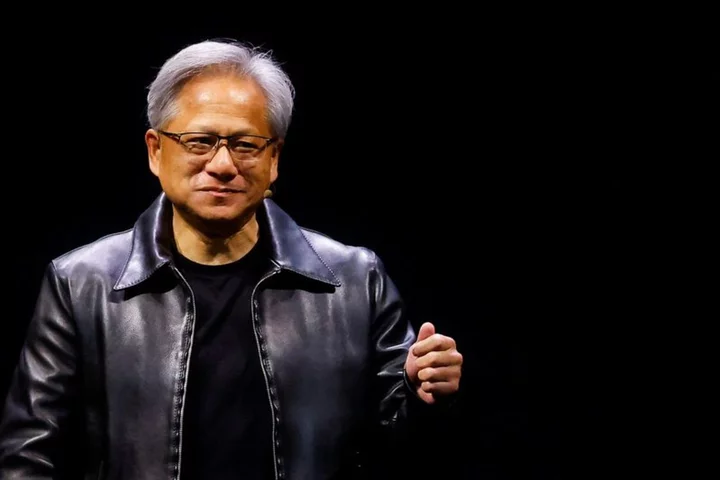
Foxconn, Nvidia say they are building AI factories together
TAIPEI Foxconn Chairman Liu Young-way and Nvidia Corp CEO Jensen Huang said on Wednesday their companies were building
2023-10-18 11:19
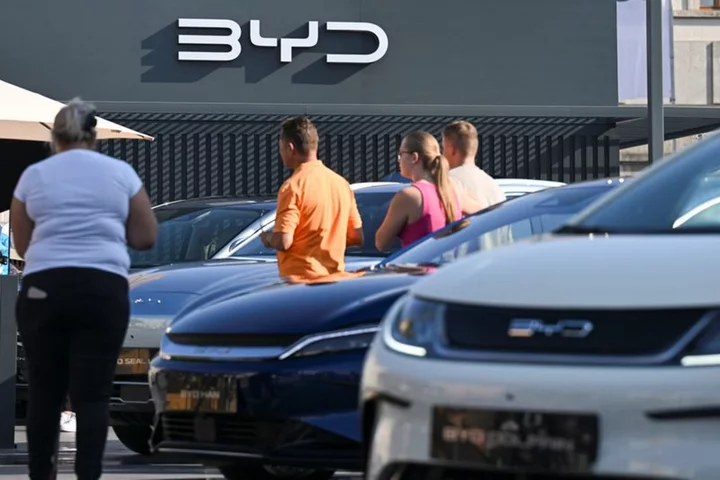
China's electric vehicle giant BYD sees Q3 net profit as much as doubling
HONG KONG (Reuters) -Chinese electric vehicle giant BYD on Tuesday said it expects third-quarter net profit to as much as
2023-10-18 10:56

Fiji and Australia boost cyber security cooperation
SYDNEY Fiji and Australia will cooperate on cyber security, with Australia also boosting aid to its Pacific Islands
2023-10-18 09:49
